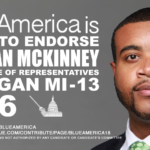Chris Wallace didn't ask Herman Cain any more questions about who his top secret economic advisers are this week on Fox News Sunday, but he did press him about his so-called 9-9-9 economic plan and the fact that the changes to the tax code he's recommending are extremely regressive and would benefit the wealthy while raising taxes on the poor.
Wallace asked Cain about an article in The Christian Science Monitor which you can read all of here -- Herman Cain's '999 plan': long overdue tax reform or job killer? -- and quoted some of the tax rates people at varying income levels would be paying under Cain's 9-9-9 plan.
WALLACE: The Christian Science Monitor did an analysis of what various income groups would pay. Someone making $20,000 a year, who now pays 13 percent tax rate would pay 17 percent. Someone making $55,000 go from 17 to 18 percent. Someone making $300,000 would go from 28 percent to 16 percent.
This is the analysis of the Christian Science Monitor, Mr. Cain, that the poor and middle class pay more. The rich pay a lot less.
Cain's response? Claiming he wasn't sure "what assumptions" they used when reaching their numbers and citing one example of what would happen to the tax rate of someone making $50,000 a year under his plan. After reading the entire article at The Christian Science Monitor, I'd say their "assumptions" on who this would harm or benefit ring a lot more true than Cain pulling out one number that suits his talking points rather than a range of them at all of the different income brackets.
And Cain's numbers make the "assumption" that we'd be getting rid of payroll taxes which is actually one of the more regressive taxes out there. Of course that means that anyone should also think it would be a good idea to take the Social Security Trust fund and lump it in with general revenues and to privatize Social Security as Cain has already said he wants to do, citing Chile as country who's example he'd like to follow.
When asked what he'd do to make sure that those tax rates he's supporting here wouldn't just be raised by the Congress later, Cain also made the "assumption" that he could command the Congress to go along with him and require a two-thirds vote to change it. Last time I checked, the President of the United States doesn't have the power to force the Congress to go along with anything and if he wants any proof of that, all he needs to do is take a look at the obstruction we've seen from the current one.
Full transcript via Fox News:
WALLACE: You know what? Let's talk about 999.
CAIN: Yes, I light up then.
WALLACE: Yes, I know you do 999 which is your idea. And let's face it, your rise in the polls at the same time that you come out with the specific plan, 999 -- 9 percent flat corporate tax, 9 percent flat income tax, and a 9 percent national sales tax.
CAIN: Yes.
WALLACE: As more is becoming known about it, there are more questions.
CAIN: Right.
WALLACE: Let's dig in.
The Christian Science Monitor did an analysis of what various income groups would pay. Someone making $20,000 a year, who now pays 13 percent tax rate would pay 17 percent. Someone making $55,000 go from 17 to 18 percent. Someone making $300,000 would go from 28 percent to 16 percent.
This is the analysis of the Christian Science Monitor, Mr. Cain, that the poor and middle class pay more. The rich pay a lot less.
CAIN: OK. I don't know the assumption of that they used. Let me walk you through my analysis with my assumptions. Let's take the $50,000, which is a median income. At $50,000, you have to into account the payroll tax. The total taxes paid by somebody at $50,000, if you assume standard deductions and you can take the number of exemptions for a family of four. They're going to pay approximately $10,000.
Now, 9 percent of $50,000 is $4,500. You already have a $5,500 gap right there. Now, if they then pay 9 percent on the sales tax of everything they have left, they would still have $2,000 left over.
So, I don't know the assumptions that they used for those numbers.
WALLACE: Look, almost everybody would say the income tax is the most progressive tax at this point because it taxes people who make less at a lower rate than people who make more. The sales tax is the most regressive tax because the richest person in the world buys $1 donut. He's going to pay the same amount as the poorest person in the world.
Necessarily, if you flatten the most progressive tax and introduce the most regressive, isn't that going to work to the benefit of the rich and detriment to the poor?
CAIN: No. No, because you're still basing it all on some assumptions.
Look, bottom line at $50,000 a year, that family is going to be $2,000 ahead. So, they come out way ahead. That's assuming that they spend every dime that they have left over.
The objective was grow the base and make the tax code fairer for everybody. It levels the playing field. It gets rid of all the loopholes. But the most interesting is, it gets the government out of the business of trying to pick winners and losers and trying to decide what's regressive and what's not regressive.
WALLACE: The other big criticism is that, as opposed to some other people who would repeal the income tax, you are keeping the income tax at a lower rate, but you're introducing a new federal tax, a national sales tax.
CAIN: Yes.
WALLACE: What? How do you guarantee -- I asked you this in the debate and I'm not sure I got a full answer, how do you guarantee that 9-9-9 down the line doesn't become 12-12-12?
CAIN: In the legislation that I'm going to ask Congress to send me, I want a two-thirds vote required by the Senate in order for them to change it. That will impede cavalierly raising it.
Secondly, the fact that the tax rate 9-9-9 is so visible, the American public is going to hold their feet to the fire and two-thirds majority in the Senate will be one of the ways to try to make sure that they don't raise it. And here's the other fact. As president, I am going to be working to bring down the debt. So, we're not going to have that tendency to continue to raise it because spending is out of control the way it is now. We will get spending under control at the same time that we grow this economy.















